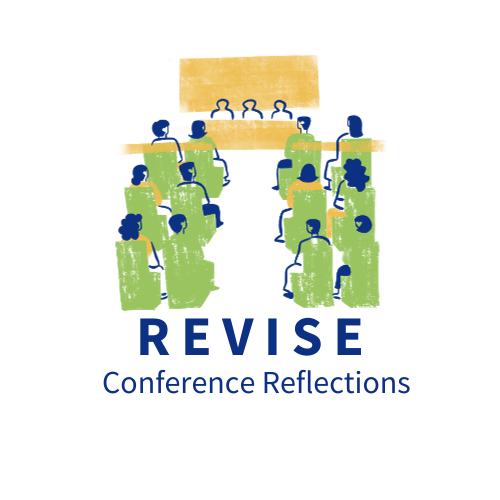
January 5th, 2024
Lisette Torres-Gerald provides her thoughts on the 2023 Critical Race Studies in Education Association (CRSEA) Conference, held on October 26th-27th, 2023.
Conference Background and Theme
Critical Race Studies in Education Association (CRSEA) hosted a conference attended mostly by K-12 educators, teacher educators, lawyers, and community-based organizations, especially those that work with youth of color. All attendees are concerned about racial justice and addressing inequity. However, to my knowledge, I was one of perhaps two people focused on STEM, let alone informal STEM education. This was a shame, but also not surprising.

The two main conversations that were occurring at the conference were the theme of Sankofa (a Ghanaian principle that means “to go back and get it”) and the current political climate around the use of critical race theory (CRT). We discussed the importance of showing other people what CRT really is and being clear on what it is not. We talked about the conflation of CRT with other critical frameworks and how fear is being weaponized against CRT scholar-educators and communities of color. We were also reminded that not all skin folk are kinfolk. Lastly, brother David Stovall made sure to emphasize that we must be clear about who we are doing the work for and that our work with and for marginalized communities is about love.
Takeaways
Though it was my first CRSEA Conference since before the pandemic, attending the conference felt like coming home. It is a unique space of fugitivity and liberation, criticality and love. It was wonderful to see new and familiar faces, to spark conversations with kinfolk I have not seen in a minute, and to learn the work of the next generation of CRT scholars. I felt like I could be more of my whole self in this space.
True to the theme of the conference, my key takeaway was that we must remember and learn from the knowledge and resilience of our ancestors and elders before trying to move forward. Humility, listening, and reflexivity are vital if we want to create transformative change in the world. I was also excited to see doctoral students exploring CRT and being interested in Disability Studies and Critical Race Theory (DisCrit), an offspring of CRT that examines the intersection of race and disability and was originally formulated to unveil the inequities experienced by Black children, particularly young girls of color, in special education and the carceral system. As a disabled Latina who uses DisCrit in my own scholarship, it was nice to have conversations with folks who are curious and intent on pushing the framework forward.
Next Steps
I got a couple of books through the conference that I am stoked to read, including Lindsay Perez Huber’s book Racial Microaggressions: Using Critical Race Theory to Respond to Everyday Racism, which is based on her work on racial microaffirmations. I have known Lindsay since she was a newly minted doctor working with Daniel Solórzano and it was nice reconnecting with her at the conference. I am looking forward to reading and learning from her book because it connects to how the REVISE Team operates and keeps advancing despite racial microaggressions and other barriers.
Learn more about the Critical Race Studies in Education Association

